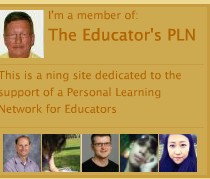
.
.
CitiZEN-Science: WHAT is it and is it worth to follow?!!
[Begin Text Wikipedia]:
Citizen science (CS; also known as community science, crowd science, crowd-sourced science, civic science, volunteer monitoring, or online citizen science) is scientific research conducted, in whole or in part, by amateur (or nonprofessional) scientists.[1] Citizen science is sometimes described as “public participation in scientific research,” participatory monitoring, and participatory action research whose outcomes are often advancements in scientific research, as well as an increase in the public’s understanding of science.[2][3] Based on Alexa rankings[4] iNaturalist is currently the most popular citizen science website[5] followed by eBird[6] and then Zooniverse[7] in second and third place respectively.
[End Text Wikipedia]
Find below a GREAT article, who explains very well:
[Begin Text SciStarter]:
As we face global challenges, we may want to find local ways to make a difference in protecting endangered species, safeguarding water sources, preventing disease, or accelerating medical research. Science needs more eyes, ears and perspectives than any scientist possesses. Enter citizen science: a collaboration between scientists and those of us who are just curious or concerned and motivated to make a difference. People just like you are collecting data by taking photos of clouds or streams, documenting changes in nature, using smartphone sensors to help scientists monitor water and air quality, or playing games to help advance health and medical research. A citizen science project can involve one person or millions of people collaborating towards a common goal. Typically, public involvement is in data collection, analysis, or reporting.
There are thousands of opportunities to participate in this movement that’s sweeping the globe! Find them on SciStarter.org .
[End Text SciStarter]:
Well, I don’want to say much more about this, apart that I back it up! I find it extremely interesting and it should get used in schools as it would certainly make students interested into Science.
As far as I know, it is ALSO used in a school in my country Luxembourg:
It would be perfect (my opinion) for STEM and MakerED, Maker-Spaces, as it is PracTICE!
MORE to come, next blog post about the already existing PracTICE:
.
.
Key words necessary for me to create this blog post: CitiZEN-Science, STEM, MakerED, Maker-Spaces, PracTICE, LEARNing-By-Doing,
.
 L’auteur Gust MEES est Formateur andragogique / pédagogique TIC, membre du “Comité Conseil” de “Luxembourg Safer Internet” (LuSI), appelé maintenant BEESECURE, partenaire officiel (consultant) du Ministère de l’éducation au Luxembourg du projet ”MySecureIT“, partenaire officiel du Ministère du Commerce au Luxembourg du projet ”CASES” (Cyberworld Awareness and Security Enhancement Structure). L’auteur Gust MEES est Formateur andragogique / pédagogique TIC, membre du “Comité Conseil” de “Luxembourg Safer Internet” (LuSI), appelé maintenant BEESECURE, partenaire officiel (consultant) du Ministère de l’éducation au Luxembourg du projet ”MySecureIT“, partenaire officiel du Ministère du Commerce au Luxembourg du projet ”CASES” (Cyberworld Awareness and Security Enhancement Structure).
The author Gust MEES is ICT Course Instructor, ”Member of the Advisory Board” from “Luxembourg Safer Internet” (LuSI), BEESECURE, Official Partner (Consultant) from the Ministry of Education in Luxembourg, project “MySecureIT“, Official Partner from the Ministry of Commerce in Luxembourg, project “CASES” (Cyberworld Awareness and Security Enhancement Structure). |
.
.
Stay tuned for next blog post(s) 😉
.
.
.













